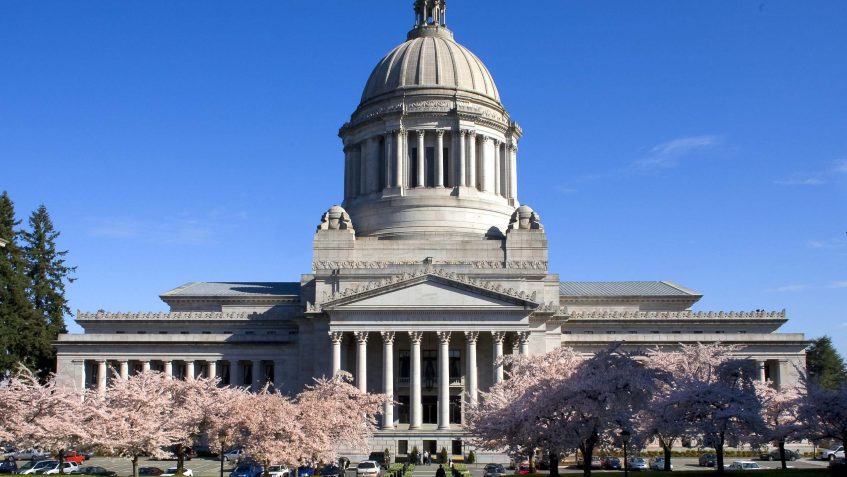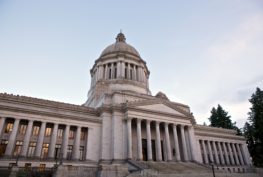Dear friends and neighbors,
We cannot ignore the fact that Washington state’s communities, economy, and natural systems are being affected by climate change. Heat waves, flooding, wildfires, and drought continue to wreak havoc in our state. This legislative session we passed several new bills and made historic investments aimed at reducing greenhouse gas emissions and safeguarding our water resources, forests, infrastructure, agriculture, and human health.
Taking Action on Climate Change

In 2021, Washington became the second state to establish a carbon emissions limit, and it is truly inspiring to witness the implementation of our state’s groundbreaking Climate Commitment Act. This plan introduces a statewide cap-and-invest program to curb carbon pollution and mandates emitters to pay for emissions allowances corresponding to their greenhouse gas emissions. Over the next two years, approximately $2 billion generated from these allowances will be allocated to various climate change mitigation efforts by the state:
- $430 million will be dedicated to lowering utility costs, facilitating the transition from fossil fuels to clean energy consumption, and enhancing air quality.
- $1 billion will be invested in reducing greenhouse gas emissions by promoting the electrification of transportation and encouraging active modes like walking and biking.
- $340 million will support a wide range of initiatives aimed at habitat restoration, ecosystem protection, and the strengthening of working lands.
- $200 million will be allocated to promote community health and resilience, including monitoring and mitigating air pollution in communities burdened by its effects.
In addition, several other bills have been enacted to reinforce the state’s environmental policies while prioritizing the well-being of both people and the environment:
- HB 1216 establishes a framework for siting new clean energy facilities throughout the state.
- HB 1138 provides additional resources for addressing droughts.
- SB 5104 improves the state’s ability to protect marine shoreline habitats in Puget Sound, Hood Canal, and the San Juan Islands.
- HB 1753 expedites the removal of abandoned vessels to safeguard public safety and shoreline ecosystems.
- HB 1047 restricts the sale of cosmetic products containing nine hazardous chemicals, including PFAS.
- HB 1085 prohibits short-term lodging establishments from using small, plastic containers for toiletries, bans the use of polystyrene floats, and requires new buildings to include water bottle filling stations with drinking fountains.
- SB 5144 establishes a statewide battery stewardship program to facilitate responsible disposal of old batteries.
- HB 1329 prevents utility companies and landlords from disconnecting electricity or water services due to non-payment during extreme heat events.
Recreation and Public Land

Like many of you, I deeply value the amazing public parks and outdoor activities available in our state including many beautiful parks right here in our 32nd district. Those who share my appreciation for access to recreation on our public lands will be pleased with the operating and capital budget investments made this year. Here are a few noteworthy highlights:
- A record-breaking investment of $120 million in the Washington Wildlife and Recreation Program, the largest funding source for outdoor community projects in our state. This program has previously supported initiatives such as the Arboretum Waterfront Trail Improvements.
- Modernization of the Trust Land Transfer program in our state, accompanied by funding for six new projects across the state, including 99 acres on West Tiger Mountain.
- Over $10 million allocated for youth athletic facilities.
- Continued funding for the No Child Left Inside program.
It is evident that climate change poses significant challenges to Washington state, however, I am very proud of the policies and investments enacted by the Legislature this year; they reflect our unwavering commitment to responsible environmental stewardship. Together, we can continue to make a positive impact and work towards a sustainable future for Washington state.
Sincerely yours,
![]()
Jesse Salomon



